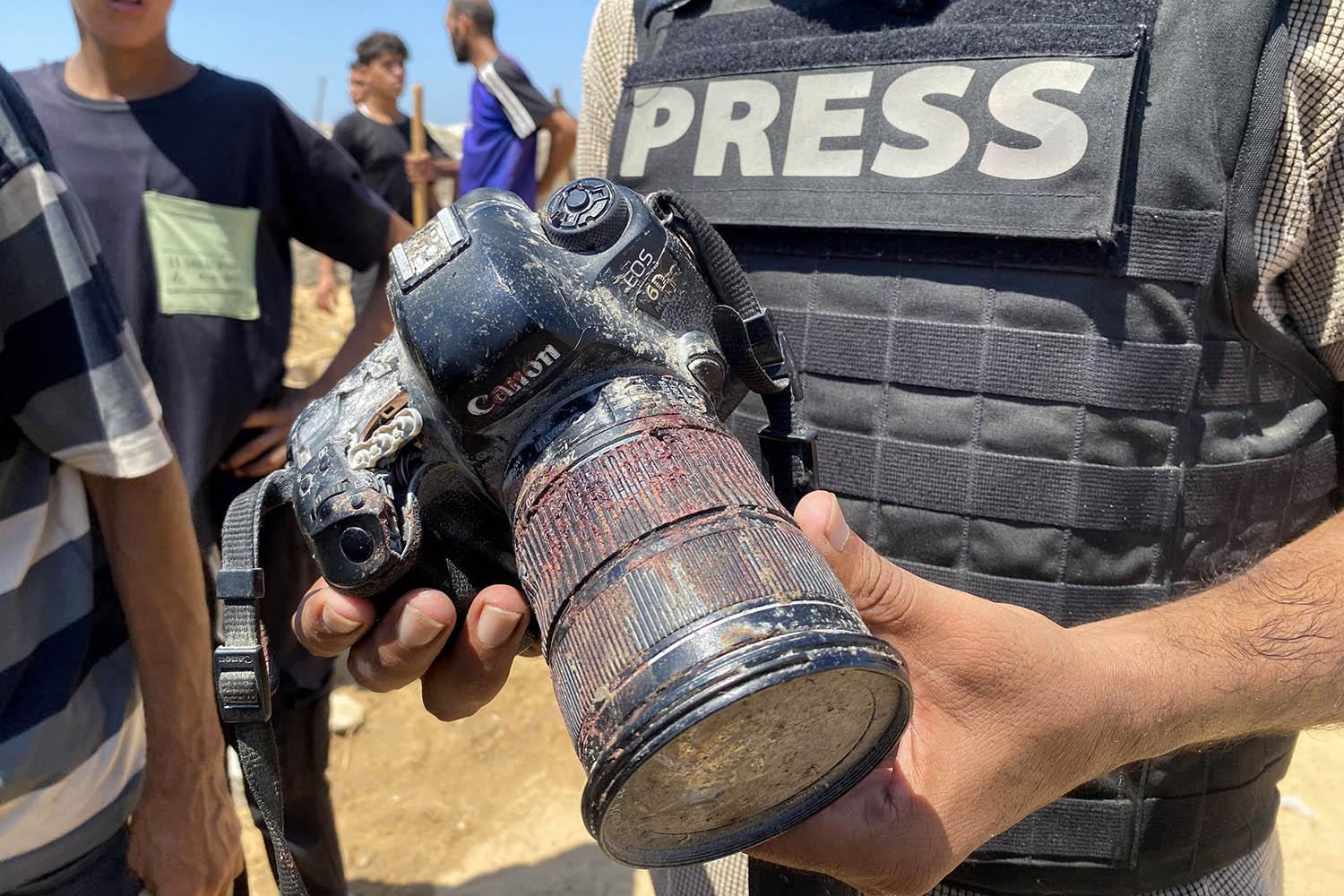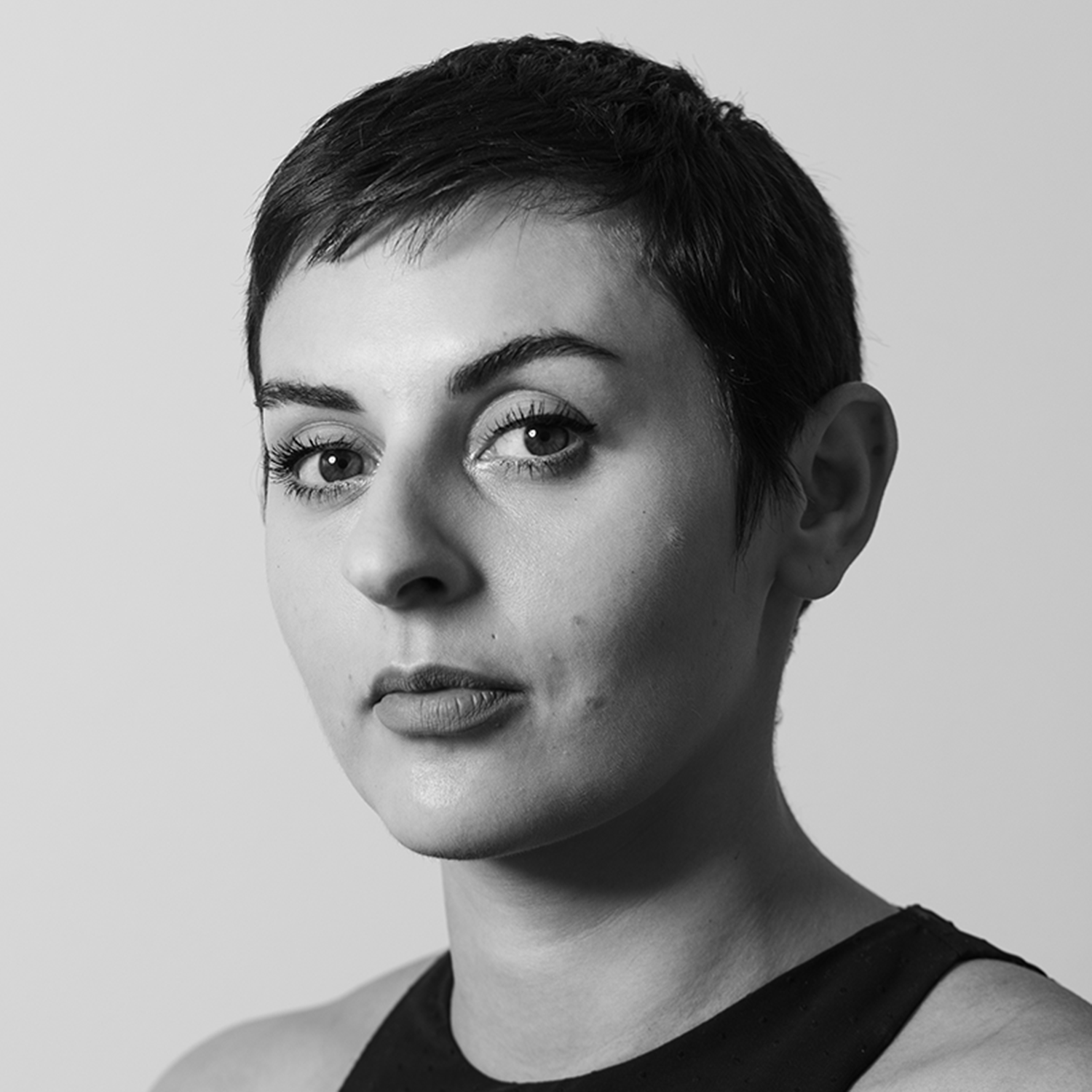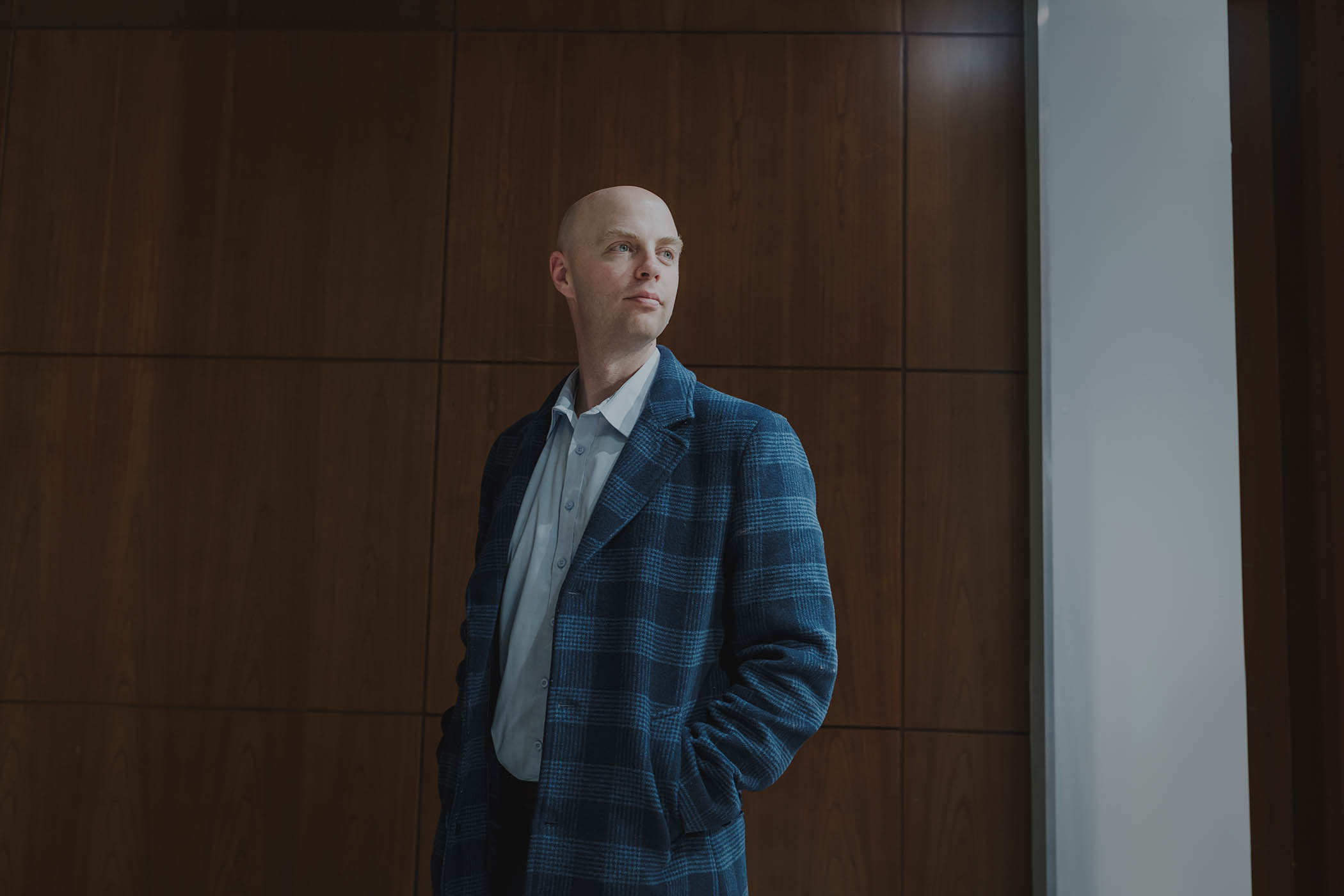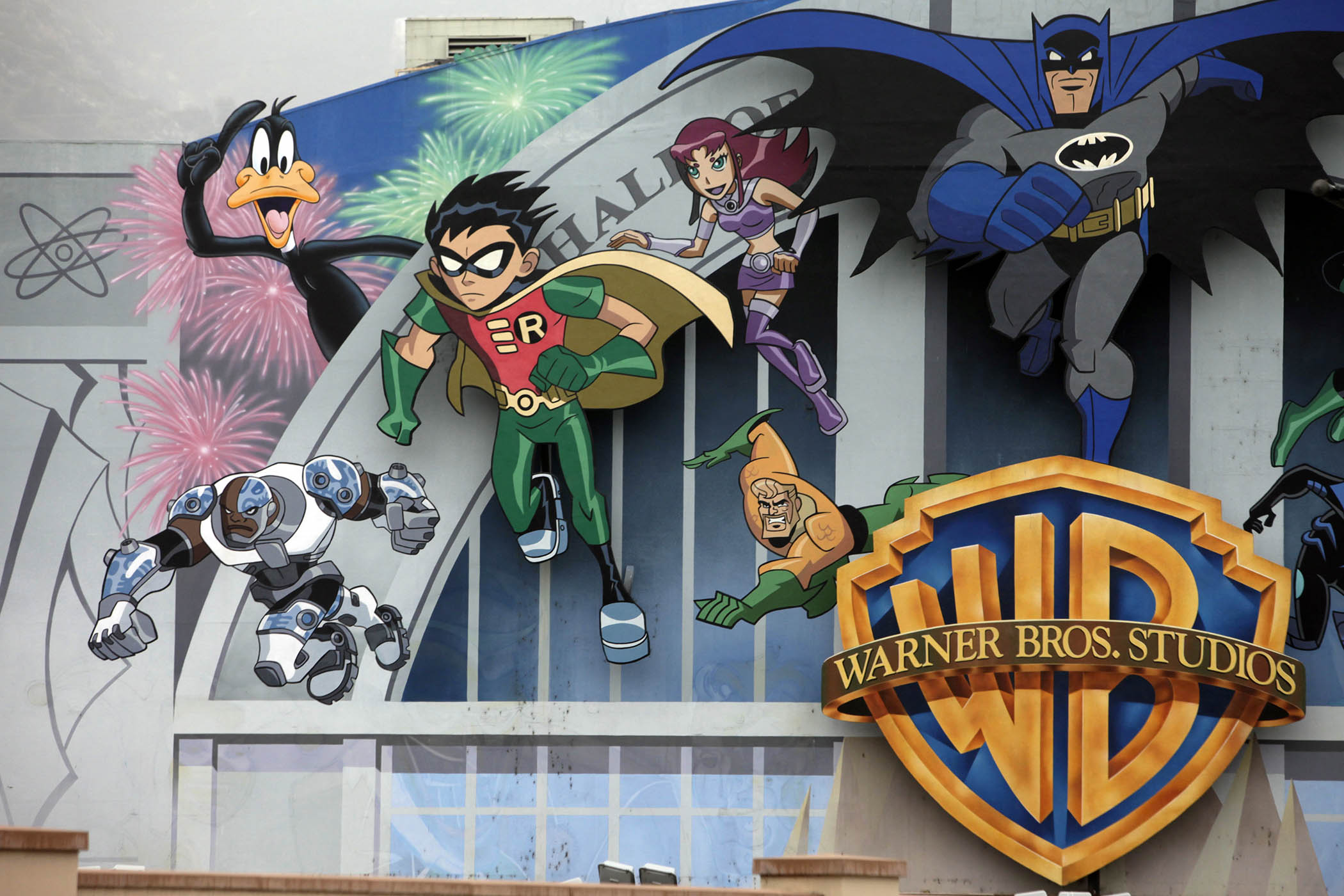Plestia Alaqad knows what it’s like to be a target. She has watched in horror as her former colleagues and her mentor were killed during Israel’s 22-month-long assault on Gaza.
“I’ve always thought of journalism as a noble profession, but I never knew that being a Palestinian journalist is a crime,” Alaqad writes in her recent memoir, The Eyes of Gaza, chronicling her life and work during the first 45 days of the war and eventual exile.
In one of the deadliest incidents of the war, a double strike on a hospital complex last week claimed the lives of five of her colleagues. Two weeks earlier, a targeted drone strike killed six journalists including Al Jazeera correspondent Anas al-Sharif, a reporter whose vibrant on-camera talent had vaulted him to prominence as one of the faces of Gaza.
The Israeli military later claimed without proof that Sharif fought with Hamas. It also gave no evidence to justify killing several other journalists alongside him, or an explanation of how Sharif – who had previously denied the claim – could fight as well as appear on air throughout the day.
Alaqad fears that the struggle of journalists such as Sharif to show the reality of life in Gaza is given consideration only after their deaths. “We need to appreciate what these journalists are doing while they are alive,” she told The Observer.
“When a journalist gets killed, you’ll see their name and story all over the news. Then it’s too late.”
Gaza is the deadliest ever conflict for reporters, according to the UN. It states that at least 247 journalists have been killed in the enclave since Israel launched its war there in response to Hamas’s attack on 7 October 2023, in which it killed about 1,200 people and took a further 251 hostage.
Israel has banned all international journalists from entering Gaza, leaving the world reliant on Palestinian reporters who are experiencing starvation, mass displacement and life under bombardment just like the people they cover, Alaqad said.
‘Despite numerous IDF probes, no one has been held responsible for these deaths’
‘Despite numerous IDF probes, no one has been held responsible for these deaths’
Committee to Protect Journalists report
Last week’s “double tap” attack on a hospital, which killed 20 people including five journalists, was one of the most brazen of the war so far. Reuters cameraman Hussam al-Masri was positioned high on an external stairwell to operate the newswire’s live feed showing a view of the southern city of Khan Younis, telling his colleagues that he believed it was the safest place he could work from.
He was killed in an initial strike, before at least two more missiles hit the stairwell killing rescue workers and journalists including the Associated Press photographer Mariam Dagga, Al Jazeera photographer Mohammad Salama, and freelance journalist Moaz Abu Taha.
Newsletters
Choose the newsletters you want to receive
View more
For information about how The Observer protects your data, read our Privacy Policy
Both CNN and the BBC analysed video from the scene: CNN found at least three missiles were used, while the BBC traced four that hit in quick succession. Bloodied cameras belonging to Dagga and Al-Masri were recovered from the stairwell after the strikes.
Thameen Al-Kheetan, a spokesperson for the UN’s human rights office, called Gaza’s journalists “the eyes and ears of the whole world” and said their killings should spur the world to act. “They must be protected.”
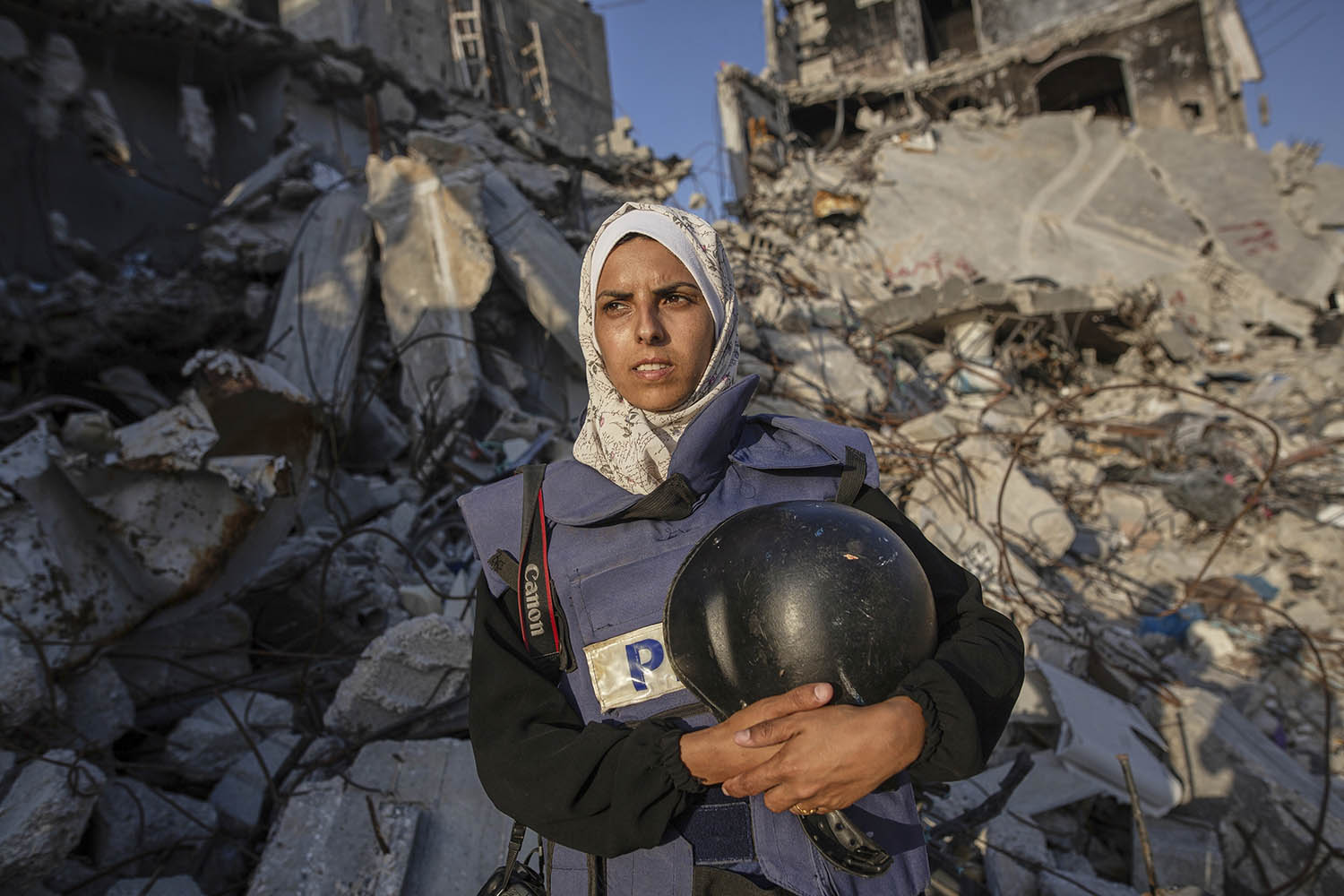
Mariam Dagga, pictured in Khan Younis, southern Gaza, last year
The Israeli Defence Forces (IDF) later denied that it “intentionally targets attacks towards journalists as such”, while Israel’s prime minister, Benjamin Netanyahu, expressed rare regret at the incident after worldwide condemnation of the strikes, calling them “a tragic mishap”.
The Israeli military later said six rescue workers who came to the scene were the targets. In a statement, the IDF accused them of being part of Hamas, without providing clear evidence of their personal involvement. Gaza’s civil defence falls under the interior ministry, controlled by Hamas. When contacted for comment, the IDF did not explain its use of “double tap” strikes, banned under international law.
The IDF said the initial target was “a camera that was positioned by Hamas in the area of the Nasser hospital that was being used to observe the activity of IDF troops”. The IDF refused to answer questions when contacted by The Observer about whether it had confused Al-Masri’s camera taking Reuters live feed for a surveillance camera; or about how Israeli forces operating near the hospital came to know that Hamas had positioned a camera on the stairwell.
“Regardless of whether the journalists were the target or not, this is still a war crime,” said Sara Qudah of the Committee to Protect Journalists (CPJ). “The Israelis hit a medical complex known to be a place with media and civilians inside. Whether it is a double tap or three strikes, this double tap by itself is a war crime. If you eliminate a terrorist and the first strike hits – why do you need to hit again?”
‘At this point, it’s no longer about Palestinians as much as the world we want to live in’
‘At this point, it’s no longer about Palestinians as much as the world we want to live in’
Plestia Alaqad
CPJ has called for an independent investigation, seeing the strikes as part of “a wider, deeply troubling pattern of lethal attacks on the media”.
Alaqad spoke to The Observer from Beirut, where she is undertaking a fellowship named for the slain Al Jazeera star reporter Shireen Abu Akleh.
Abu Akleh was shot by the Israeli military on the outskirts of Jenin in 2022. A year after her killing, CPJ released a report examining the deaths of 20 journalists killed by Israeli military fire over two decades.
“Despite numerous IDF probes, no one has ever been charged or held responsible for these deaths,” it said. “The impunity in these cases has severely undermined the freedom of the press.”
The CPJ’s Qudah underlined concerns about the Israeli military’s pledge to investigate the attack itself. Israeli forces made similar promises after the shooting that killed Abu Akleh and tank shells targeting a group of reporters in southern Lebanon in December 2023, killing Reuters cameraman Issam Abdallah and seriously wounding six other reporters. These pledges did not result in any individual soldier being held accountable.
“We’ve heard several times that the international community has demanded an investigation – but what are they doing to enforce an independent investigation rather than just demanding it,” she said. “Our question would be to the international community: What does it take for them to act instead of demand or condemn?”
Alaqad reflected on the live television feed that captured the moment her colleagues were killed at Nasser hospital. “I don’t think anyone wants to live in a world where journalists are killed live on television,” she said. “I believe at this point it’s no longer about Palestinians as much as it is about the world we want to live in.”
Photograph by Getty Images. Other picture by Jehad Alshrafi/AP
